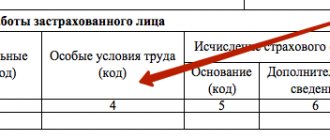Right to work
An employer cannot refuse to hire a woman for a vacant position because she is pregnant. If they don’t want to hire an employee because of an interesting position, this is discrimination Article 64 of the Labor Code of the Russian Federation. The violator will be prosecuted under Article 145 of the Criminal Code of the Russian Federation: he will pay a fine or be sent to community service.
A pregnant woman can be refused if her level of education or work experience does not meet the employer’s requirements. He must give a detailed answer in writing why the woman was refused. They usually explain that the candidate did not pass due to a low level of qualifications.
Also, a pregnant woman may not be hired for work where the labor conditions are too difficult or do not meet safety requirements.
When a woman is accepted, she starts work without a probationary period Article 70 of the Labor Code of the Russian Federation. If an employee hid her pregnancy from her future boss, this is not considered a violation. There is no violation on the part of the employer who established a probationary period without knowing that the woman was pregnant. But he will have to prove that he did not know about the employee’s condition.
A woman who becomes pregnant during the probationary period cannot be fired according to the Resolution of the Plenum of the Supreme Court of the Russian Federation of January 28, 2014 “On the application of legislation regulating the work of women, persons with family responsibilities and minors,” even if she did not pass the test. To remain at work, she must provide a certificate from the hospital.
Your "golden" life
Share
Tweet
guarantees for pregnant women
The Labor Code of the Russian Federation provides special guarantees to certain categories of workers, in particular: women, persons with family responsibilities, and minors. In this article I will talk about guarantees for pregnant women , whose labor rights today enjoy absolute protection from our state.
And you should especially remember for yourself that in the event of a violation of labor laws by an employer in relation to a pregnant woman, you should definitely contact the state supervisory authorities and the court, because when the plaintiff in a labor dispute in court is a pregnant woman or a woman with a small child, then the court’s attitude will always be special. And the slightest violation on the part of the employer of the rights of these categories of workers will have the most unfavorable consequences for him.
I will list all the main guarantees provided by the Labor Code to pregnant women: 1. It is prohibited to refuse to conclude an employment contract for reasons related to pregnancy or the presence of children (Part 3 of Article 64 of the Labor Code of the Russian Federation). 2. It is prohibited to establish a test when hiring (Part 4 of Article 70 of the Labor Code of the Russian Federation). 3. It is prohibited to hold a competition to fill positions of scientific and pedagogical workers held under an employment contract concluded for an indefinite period. (Part 5 of Article 332 of the Labor Code of the Russian Federation). 4. Not allowed to work at night (Part 5 of Article 96 of the Labor Code of the Russian Federation). 5. They are not required to work overtime. (Part 5 of Article 99 of the Labor Code of the Russian Federation). 6. Work on weekends and holidays is prohibited (Part 7 of Article 113 of the Labor Code of the Russian Federation, Part 1 of Article 259 of the Labor Code of the Russian Federation). 7. It is prohibited to send someone on a business trip (Article 259 of the Labor Code of the Russian Federation). In addition, for pregnant women and people with family responsibilities, there are specifics when providing annual paid leave: 1. Pregnant women have the right to annual paid leave, regardless of their length of service with a given employer. At the request of the woman, leave is granted before maternity leave or immediately after it (Article 260 of the Labor Code of the Russian Federation). Also, at the request of the woman, leave is granted at the end of maternity leave. 2. The spouse of a pregnant woman, at his request, is granted annual leave while the wife is on maternity leave, regardless of the time he works for this employer (Part 4 of Article 123 of the Labor Code of the Russian Federation). 3. It is prohibited to recall a pregnant woman from vacation, as well as to replace vacation with monetary compensation (with the exception of monetary compensation for unused vacation upon dismissal).
Now I will comment on some of the above points that may raise questions for you.
Does an employer have the right to require a woman to provide a certificate stating that she may be pregnant when applying for a job? When applying for a job, each candidate is required to provide documents, the list of which is specified in Article 65 of the Labor Code of the Russian Federation. In some cases, taking into account the specifics of work, federal laws may provide for the need to provide additional documents to provide benefits and guarantees to certain categories of employees. The list is exhaustive and the requirement to provide any other additional documents, including a medical certificate about the absence (presence) of pregnancy, is illegal. Thus, the employer’s requirement to undergo a medical examination for women will be correct only if the woman gets a job where the work of pregnant women is prohibited by law (rotation work, hard work, work in hazardous conditions, etc.). If, during a preliminary medical examination, it is determined that a woman is pregnant, she will be denied an employment contract. In all other cases, a woman’s pregnancy should not influence the decision to conclude an employment contract with her.
Can a pregnant woman ask for a reduction in working hours? Yes maybe. If a doctor issues a certificate stating that, for health reasons, a pregnant woman needs to be assigned part-time work, then the employer is obliged to fulfill the woman’s desire in accordance with Article 93 of the Labor Code of the Russian Federation. But keep in mind that your work will be paid in proportion to the time actually worked. And under no circumstances set yourself a shorter working day or additional days off on your own. You must write an application addressed to the manager, attach a medical certificate to it, and wait for the order to be issued. All your unauthorized decisions can be regarded as a violation of labor discipline and, although dismissal of a pregnant woman is possible only in special cases, if you wish, you may well receive disciplinary action, which in most organizations entails deprivation of bonuses, bonuses and other pleasant additions to your salary . Your legal rights need legal documentation. If you work part-time during pregnancy, then there are no restrictions on the duration of annual paid leave, calculation of length of service and other labor rights. By the way, even if there is no medical report, but for some reason you want to work less, you can easily contact your employer and ask them to enter into an additional agreement with you during your pregnancy to the employment contract establishing a part-time working schedule for you ( transfer to light work). ). But in this case, the employer has the right to refuse you, although in practice there are rarely managers who would even hypothetically want to see childbirth in the workplace. Most often, I prefer to treat pregnant employees like crystal vases, with care and concern.
What to do if you have medical contraindications to continue working under the same conditions? If a medical institution has given you a certificate stating that you are contraindicated from working at your previous place of work (there are some harmful factors: noise, windowless space, radiation from office equipment, etc.), and the employer does not have the opportunity to exclude from the working conditions specified in conclusion of harmful factors, then the following options for the employer’s actions are possible: -you may have production standards reduced; -you can be transferred to another job that eliminates your exposure to harmful factors, while maintaining your average earnings at your previous place of work (Part 1 of Article 254 of the Labor Code of the Russian Federation). Pay special attention to the following - if the process of transferring you to another job has been delayed due to the fact that the employer is looking for a new suitable place of work for you, then you should be released from working in a “harmful place”, and you should receive the average salary for all missed working days be paid (part 2 of article 254 of the Labor Code of the Russian Federation). Moreover, if in your organization there are no jobs at all to which you could be transferred in accordance with a medical report, then the employer may well decide that you can stay at home all the time before maternity leave ( and naturally receive your average salary). Do not forget that all these actions must be documented in writing, i.e. your application, additional agreement, employer’s order to transfer you to another job during pregnancy. If the employer cannot equip a workplace for a pregnant woman that meets medical requirements, then the order can stipulate that during the period of release from work the woman can stay at home, staying in touch to agree on the terms of the transfer, if such an opportunity arises. Of course, your boss may invite you to come to work and be not at your workplace, but, for example, in the reception or meeting room, i.e. in a place where there are no harmful factors. But this could be fraught for him, because any incident involving a pregnant employee who was on the territory of the organization will be classified as an industrial accident with all the ensuing consequences. So, if necessary, you can convey this information to your boss. I am sure that he will prefer to take care of you and himself at the same time.
How to undergo medical examinations without violating the Labor Regulations. All pregnant women must undergo regular medical examinations from various doctors. Most often, the time prescribed by the doctor for the examination coincides with working hours. In Art. 254 of the Labor Code of the Russian Federation states that the employer is obliged to pay for this time in the amount of average earnings. Most often, it turns out that it is easier to take a few hours off to visit a doctor, and most employers do not even reflect on the time sheet the hours when a pregnant woman underwent a medical examination. The difference between wages and average earnings is most often insignificant and is not worth making a fuss over. In this case, your boss will not even ask you to show him a doctor’s certificate confirming the time you were in the antenatal clinic. But there are women who abuse their right and, under the pretext of undergoing a medical examination, are absent from work for the entire working day or several days. In this case, be prepared to be required to provide a doctor's certificate. By law, the employer is required to let you go to the doctor, but is not required to pay for this time. Therefore, most likely, in order not to bother with an internal investigation and imposing a disciplinary punishment on you, you will be asked to write an application for leave without pay. And you will have to write it, because they cannot fire you, but they can fray your nerves for your absenteeism. Therefore, demand that the law be observed in relation to you, but also observe it yourself. Especially if you want to return to your workplace after your child grows up. And besides, you may suffer financial losses, because the more days you are absent without explanation and, accordingly, without pay, the less the maternity benefit will ultimately be. Therefore, I advise you once again - be a conscientious worker and then you will be treated with care and understanding of your difficult emotional and physical state, and you will be allowed much more than your colleagues can boast of.
Registration of maternity leave. The basis for granting maternity leave is a certificate of incapacity for work issued by a medical institution. The duration of such leave is: - according to general rules, 70 calendar days before childbirth and 70 calendar days after. A total of 140 calendar days; - in case of complicated childbirth, 70 calendar days before and 86 calendar days after childbirth; -if the birth of two or more children is expected, then 84 calendar days before and 110 calendar days after the birth. When you receive a certificate of incapacity for work from a doctor, you need to write an application at work for granting you maternity leave, as well as for the assignment of maternity benefits in order to issue an appropriate order. Along with a certificate of incapacity for work for pregnancy and childbirth, you can obtain a certificate from a doctor stating that you were registered in the early stages of pregnancy. Having such a certificate, you can receive another, albeit small, benefit.
Can a pregnant woman be fired? No, a pregnant woman cannot be fired at the initiative of the employer (Part 1 of Article 261 of the Labor Code of the Russian Federation). There is only one exception to this rule - the liquidation of an enterprise (Part 1 of Article 81 of the Labor Code of the Russian Federation). Life is full of surprises. A situation may well arise in which a woman is fired at the initiative of the employer (for absenteeism or other disciplinary violations), and after that she finds out that she is pregnant and, most importantly, on the day of dismissal she was already pregnant, although she was not yet I knew it myself. Although I don’t like violators of labor discipline, I will sympathize with a pregnant woman and tell her what to do. You need to take a medical certificate of pregnancy, which will clearly indicate the approximate duration of pregnancy, and go to the employer at your previous place of work. Show the certificate and ask to cancel the dismissal order. But do not ask verbally, but in the form of a statement. If the boss refuses to accept your application, much less satisfy it, then register the application in the office, but if there is none, then send it by registered mail with acknowledgment of receipt. In general, you notify the employer in any way about your “interesting position” at the time of dismissal. The fact is that the ban on dismissal of a pregnant woman , which is written about in Part 1 of Article 261 of the Labor Code of the Russian Federation, is absolute and unconditional and does not provide for a state of awareness or ignorance of the employer about the pregnancy of his employee. You must be reinstated in your previous position, having the dismissal order canceled as issued in violation of labor laws. If your boss resists, feel free to go to the labor inspectorate, the prosecutor's office, or straight to court. Your cause is just - victory will be yours!
What to do if you worked under a fixed-term employment contract and the contract has expired? Dismissal of a pregnant woman working under a fixed-term employment contract has its own characteristics. If pregnancy occurs before the end of the employment contract, you must contact the employer with a medical certificate and an application to extend the employment contract. In this case, an additional agreement must be concluded with you to extend the term of the employment contract until the end of pregnancy, i.e. before giving birth. However, if your fixed-term contract was concluded during the absence of the main employee, who retained his job, then you may still be fired at the end of your contract (Part 3 of Article 261 of the Labor Code of the Russian Federation). But I'll tell you a secret. If you go to court, the court may well take into account some of your everyday circumstances and oblige the employer to extend your fixed-term contract until the moment of birth. Employers really don’t like to sue pregnant women, because it’s more expensive for themselves, so even if the main employee returns to work, there is a very high probability that you will be kept at work until the end of your pregnancy.
That's basically all you need to know about the guarantees for pregnant women provided by our labor laws.
If you need professional help in solving your specific problem regarding labor law issues (dismissal, disciplinary action, violation of your rights and guarantees, etc.), then you can contact me directly.
All contacts and terms of consultation are on this page.
More articles on this topic:
Who will pay for sick leave if the organization is bankrupt?
If the father wants to look after the child
Oh, God - what a worker...
We pass each other's test successfully
We receive payment upon dismissal according to the law, and not out of mercy
Is it possible to defeat an employer in court?
Parental leave for up to three years
How to stay profitable if they try to fire you
How to write a good resume.
How to find a good job.
Good job.
If you are interested in making money on the Internet, you can read other articles on this site:
How to give gifts to people and make money from it?
Your own online store is a reality
Typing at home: an opportunity to make money or a scam?
Why is there no money? You are doing the wrong thing.
Earning money "on cats"
Let me remind you that all subscribers to my blog have the privilege of receiving free expert advice.
Subscribe to site news
You can also read on this topic:
Good job.
How to find a good job.
Who will pay for sick leave if the organization is bankrupt?
Share this post for your friends:
↑How to install such buttons?↑
Friend me:
Easy work
Pregnant women have the right to easier work. That is, a woman can ask for a reduction in workload Article 254 of the Labor Code of the Russian Federation. The production norm Encyclopedia of law or service The dictionary of economic terms should be changed: to allow serving fewer clients in a certain time, making fewer parts, etc.
A pregnant woman is also required to transfer Article 254 of the Labor Code of the Russian Federation to another job where there is no exposure to unfavorable factors:
- noise louder than 60 decibels;
- hazardous chemicals;
- substances with repulsive and disgusting odors;
- vibration, ultrasound;
- draft and so on.
In this case, the employee cannot:
- pick up objects from the floor;
- walk more than 2 kilometers;
- work in conditions where clothes and shoes get wet;
- work squatting, on your knees, bent over;
- Constantly lift weights greater than 1.25 kilograms.
These and other standards are recorded in the sanitary rules SanPiN 2.2.0.555-96 “Hygienic requirements for working conditions for women,” as well as in the hygiene recommendations Hygienic recommendations for the rational employment of pregnant women for the employment of pregnant women.
If we take into account all the sanitary standards, it turns out that even at a computer a woman in a position cannot work for more than three hours. in a day.
Despite the easier working conditions, pregnant women must be paid the average wage. Article 139 of the Labor Code of the Russian Federation.
Norms for a shortened schedule in pregnant women
Despite the fact that Russian Labor legislation provides for a special work schedule for pregnant employees, this does not mean that they can work any number of hours. There are special standards that are taken into account when drawing up a special schedule for workers in this situation.
A shortened day is an opportunity to work not 8, but 6 hours a day. In addition, the employee may be offered a shortened week. In this case, the number of hours remains the same, but days off are added. Thus, the working period will be considered not from Monday to Friday, but from Tuesday to Thursday. You can find an alternative option. To do this, you should write a statement indicating that the pregnant employee wants to work 6.5 hours 4 times a week. In this case, an additional day off on Friday is provided.
It should also be taken into account that the reduction of the working day largely depends on how many hours a day the woman works as usual. This also applies to the weekly work schedule. In some cases, issues are resolved exclusively on an individual basis.
An employee can easily set up part-time work. To do this, you must first obtain a certificate from a medical institution stating that the woman is indeed pregnant. Next, a statement is written in any form addressed to the management. Here it is necessary to indicate exactly what benefits the expectant mother wants to take advantage of. That is, the application must express a desire to receive additional days off or a reduced working day. You can choose a third option with a shorter day and one additional day off.
These are the two main documents that need to be presented to the employer. Having received them, the boss must immediately respond and fulfill the request of the pregnant employee. Otherwise, he faces administrative punishment and a fine. It would not be superfluous for a woman to keep copies of the papers. They can be useful in case of controversial situations.
After the new work schedule for the pregnant employee has been discussed and all the nuances have been agreed upon, the employer issues an order, which is signed by the employee. Only after this can this issue be considered resolved. In this case, the agreement must be signed in two copies. One of them remains with the pregnant woman.
There are also cases when the employer simply does not want to comply with the request of a pregnant employee. Moreover, if we take into account that the labor code provides for a preferential work schedule for pregnant women, he is at great risk. Failure to comply with the requirements of the Russian Labor Code is punishable. If a woman can provide a pregnancy certificate from a medical institution and has written an application to change her work schedule, management does not have the right to refuse her.
At the same time, the expectant mother should take into account that changing the work schedule also entails a decrease in wages. This is the reason that employees in this position often give up their privileges.
Special operating mode
Pregnant women will not only have a lighter workload, but also a more flexible work schedule. They are not allowed to work in shifts or go on business trips. It is unacceptable to involve a woman in such work, even if she herself wants it.
The Labor Code also prohibits going on shift:
- at night Article 96 of the Labor Code of the Russian Federation;
- overtime Article 99 of the Labor Code of the Russian Federation;
- on weekends Article 259 of the Labor Code of the Russian Federation;
- on holidays.
An employee in this position may apply for a short work week or shift under Article 93 of the Labor Code of the Russian Federation. Or combine a short week with part-time work. It is enough to ask the employer about this and provide a certificate from the hospital. This does not affect vacation and work experience, but they will pay exactly as much as the pregnant woman worked.
Leaves to the hospital
The Ministry of Health established Order of the Ministry of Health of the Russian Federation dated November 1, 2012 No. 572n “On approval of the Procedure for providing medical care in the field of obstetrics and gynecology”, that during the entire period of pregnancy women must visit:
- obstetrician-gynecologist - at least seven times;
- therapist - at least twice;
- dentist - at least twice;
- otolaryngologist and ophthalmologist - at least once;
- other specialists - according to indications.
You can go to the hospital on weekdays from the earliest stages of pregnancy. The Labor Code does not limit the number of visits to the doctor.
An employer should not force an employee to go on vacation or take days off without pay. The pregnant woman will continue to be paid the average salary Article 254 of the Labor Code of the Russian Federation.
Unscheduled annual leave
To receive leave, a new employee must work for the company for at least six months. Pregnant women are an exception. They can take vacation at any time. Article 122 of the Labor Code of the Russian Federation. The woman determines the dates herself and may not check the vacation schedule of her colleagues.
The manager does not have the right to call a pregnant employee on vacation to work, even if she agrees and has confirmed this in writing.
In the same way, the law prohibits Article 126 of the Labor Code of the Russian Federation from taking monetary compensation for vacation during this period.
How to get sick leave for pregnant women due to quarantine
Residents of Moscow who are pregnant or in the postpartum period have the right to stay at home. If the employer is unable to transfer the employee to remote work, she has the right to contact the hotline
- it is important to register with the antenatal clinic before applying, because the fact of pregnancy will be checked;
- then they will provide an electronic sick leave, and its number will be communicated via SMS or by phone.
Read more about sick leave for pregnant women due to coronavirus here.
Ban on dismissal
An employer, with all its desire, cannot, Article 261 of the Labor Code of the Russian Federation, fire a pregnant woman, even if she skips work without good reason. The maximum that a manager can do is issue a reprimand or reprimand.
A pregnant woman can be fired without consequences in two cases:
- If an individual entrepreneur or company ceases to exist.
- If the employee is working as a substitute and the contract expires. But the employer must offer Article 261 of the Labor Code of the Russian Federation another vacancy. Moreover, you need to show all the options that exist in this area, even if the position is lower and the salary is lower. An employer can offer a place in another city or region if this is provided for in an agreement, labor or collective agreement.
If an employee's fixed-term employment contract expires, she can ask to extend it until the end of her pregnancy. If desired, the employer can include maternity leave in this period. In response, the woman must provide a certificate from the hospital every three months, proving that she is still pregnant. As soon as the boss finds out about the birth, he can terminate the contract.
A pregnant woman can leave work of her own free will. And at the same time not work for two weeks.
What is meant by light work?
When a person’s health status changes, the law does not provide for immediate dismissal (even if the employer wants it that way). A subordinate has the right to demand easier working conditions. Labor law does not specifically define the expression “light labor.” It is necessary to understand that the concept of light work will be interpreted differently in different situations (depending on the reason for the transfer). The main thing is to eliminate factors dangerous to humans:
- in the process of performing official duties, the load on the damaged part of the body must be eliminated (for example, with a sore back you cannot lift weights);
- if the disease is general in nature, factors that can provoke an exacerbation must be eliminated (for example, if you have asthma, you should not work in a dusty room);
- exposure to harmful substances for the health of a pregnant woman or her unborn child, etc.
Anything that could worsen a person's health should be excluded.
A transfer to light work is also possible if, due to his illness, further performance of labor functions becomes impossible for a subordinate (for example, it is difficult to drive a car with a broken leg). In what cases does this happen:
- subordinate receiving disability;
- some diseases (congenital/acquired);
- time of bearing a child;
- some types of surgery;
- receiving injuries and mutilations (including during work).
In order to transfer to light work due to pregnancy or other reasons, a subordinate must express his desire to do so in writing addressed to the manager. Confirmation of the request in the form of a medical report is required.
Payment of benefits
The law does not have the usual concept of “maternity leave”. There is maternity leave, Article 255 of the Labor Code of the Russian Federation, and maternity leave; it is registered as sick leave. Depending on the circumstances, it may last:
- 140 days is the standard period for the birth of one baby;
- 156 days - if the birth was difficult;
- 194 days - for multiple births (twins, triplets, etc.).
At this time, the woman is paid benefits Article 6 No. 81-FZ (as amended on July 29, 2018) “On state benefits for citizens with children” for pregnancy and childbirth. Or, more simply put, “maternity leave.” This year, the Social Insurance Fund has increased the amount of payments.
- The maximum amount is 282,493.40 rubles for 140 days. The amount is determined depending on the mother’s earnings for two years. A woman can claim the maximum amount if she earned 755 thousand rubles in 2021, and 815 thousand in 2021.
- The minimum amount is 51,919 rubles for 140 days.
If twins were born or the birth was difficult, the payments will be higher. They will be increased depending on how many days you need to spend on sick leave.
After maternity leave comes leave to care for the child, Article 256 of the Labor Code of the Russian Federation. It can last until the baby is three years old. The mother retains her job, and the vacation time is counted towards the length of service.
While the baby is less than one and a half years old, the woman receives benefits every month Article 11.2 No. 255-FZ “On compulsory social insurance in case of temporary disability and in connection with maternity” dated December 29, 2006 for child care. The payment amount is 40% of the mother’s earnings for two years.
A woman can work at home or go out part-time. So she will receive Article 11.2 No. 255-FZ “On compulsory social insurance in case of temporary disability and in connection with maternity” dated December 29, 2006, both benefits and salary.
When the child gets older, the mother receives only compensation. Decree of the President of the Russian Federation of May 30, 1994 No. 1110 (as amended on July 1, 2014) “On the amount of compensation payments to certain categories of citizens” - 50 rubles per month. She will be paid this amount until her son or daughter turns three years old.
Konstantin Bobrov
Director of the legal service "Unified Defense Center".
If the rights of a pregnant employee are infringed, she has the right to appeal to the prosecutor's office, the state labor inspectorate and the court. You can submit a corresponding complaint to the listed authorities either simultaneously or separately.
In this case, it is necessary to attach documents confirming the violations (including written explanations of witnesses). If a negative decision is made, it is possible to appeal it by contacting a higher authority.
Are pregnant women required to work during the coronavirus period?
Since the very beginning of the spread of COVID-19 in Russia, two categories of citizens have been identified who are required to observe self-isolation:
- people over 65 years of age;
- having chronic diseases.
Such citizens are given sick leave and are released from work during the quarantine. The procedure is carried out for employees who cannot be transferred to remote work.
Pregnant women must follow all prescribed precautions. The effect of coronavirus on pregnancy has not been studied; cases of infection of the fetus from the mother are unknown. But the Ministry of Labor recommends changing the work schedule of pregnant women to remote work.
Restrictive measures are introduced by regional authorities taking into account the current epidemiological situation in the constituent entity of the Russian Federation. For example, Decree of the Mayor of Moscow dated September 25, 2020 No. 92-UM mentions the need for self-isolation of citizens with diseases determined by the Moscow Health Department. From September 28, 2020, pregnant women and those in the postpartum period are required to stay at home.
In other regions, the list of people subject to self-isolation has not been expanded, so pregnant women are not sent to quarantine for coronavirus. But quite often a gynecologist is ready to issue a certificate of incapacity for work upon request, in order to be on the safe side if a woman complains of malaise and poor health.
As a result, pregnant women and women in the postpartum period:
- in Moscow they go on remote work or self-isolation due to coronavirus with a sick leave;
- in other regions they are transferred to remote work, and go on sick leave for health reasons after seeing a gynecologist.
Read the material about self-isolation for workers 65+.
Consultant Plus has all the information on ANTI-CRISIS MEASURES
Find out what benefits any company or individual entrepreneur can receive
Get access for 2 days









